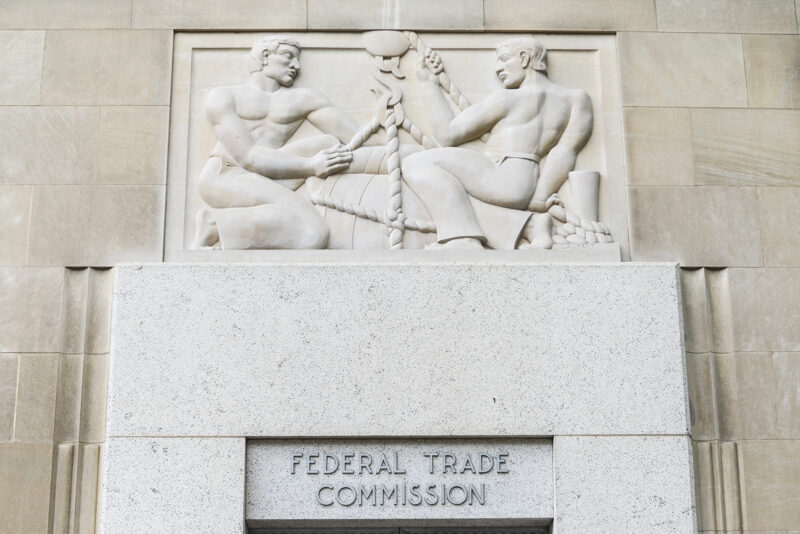The Federal Trade Commission ended 2024 with another filing against an automobile dealer.
The FTC and Maryland Attorney General filed a complaint in the U.S. District Court for Eastern Virginia against the Lindsay Automotive Group, alleging it deceived customers and charged them millions in junk fees and unwanted add-on products.
The filing names three Lindsay Automotive Group dealerships, Lindsay Chevrolet in Woodbridge, Virginia; Lindsay Chrysler, Dodge, Jeep, Ram in Manassas, Virginia; and Lindsay Ford in Wheaton, Maryland. The complaint also names part owner and president Michael Lindsay and Chief Operation Officer John Smallwood.
The FTC claims Lindsay Automotive advertised deceptive prices and promoted prices not available to most customers. The agency claimed that a sample of Lindsay’s transactions showed 88 percent of customers paid more than $2,000 above the advertised price between 2020 and 2023.
The complaint also stated Lindsay Automotive made deceptive claims that vehicles must be financed through the dealership and that consumers were directed loans with higher rates. Customers also alleged being charged for add-ons they did not consent to or being told they were mandatory.
“Auto dealers who trick consumers with bait-and-switch advertising, financing sleights of hand, and unwanted add-ons should expect to hear from the FTC,” said Samuel Levine, Director of the FTC’s Bureau of Consumer Protection in the press release. “The FTC and its state partners will continue working to combat this illegal conduct.”
Attorney General Anthony G. Brown added in the press release: “Buying a car is a significant financial investment. Marylanders deserve to know up front how much they will actually pay for a vehicle and should not be surprised by hidden charges that they did not budget for.” “Our Office will not let car dealerships profit from unfair and deceptive practices.”
Lindsay Automotive issued a statement to D.C. News Now about the allegations.
“Lindsay Automotive Group (LAG) is a local and family-owned group that has provided affordable, and reliable vehicle purchasing options to the D.C. metro community for over 60 years. As a responsible company, we are committed to fully complying with the law and providing excellent customer service. You can rest assured that our focus remains where it has always been on providing the absolute best option for our customers and on serving the community in a manner that would make all of our employees, customers, and partners proud. We strongly refute any suggestion of improper conduct and will work to resolve this matter through the legal process,” the statement read.
The complaint against Lindsay Automotive follows the $20 million settlement between the FTC and Leader Automotive Group and their parent company Auto Canada. The FTC alleged in the case the company deceived customers about the price and availability of vehicles, charged for add-ons without consent, added unnecessary fees, posted fake reviews and did not disclose some vehicles were imported from Canada.
The recent enforcement by the FTC comes while a stay is in place on the Combatting Auto Retail Scams (CARS) rule. The CARS rule was finalized in December 2023 by the FTC and it was set to go into effect July 30, 2024. The FTC issued a stay of the regulation, which remains in place, shortly after the NADA and TADA filed their lawsuit.
The rule would require dealers to provide consumers with an offering price, disclose all optional add-ons and give information about total payment when discussing the monthly payment. There are additional disclosures and recordkeeping of communications with customers required.
NIADA and the Texas IADA joined the efforts to stop the Federal Trade Commission from enforcing the vehicle shopping rule, filing an amicus brief in support of NADA/TADA.
The United States Court of Appeals for the Fifth Circuit in New Orleans heard 30-minute oral arguments from attorneys representing the NADA and TADA and the FTC in October. A ruling is expected in 2025.










